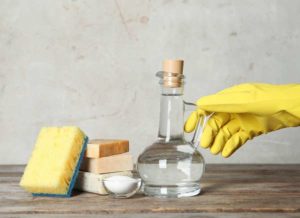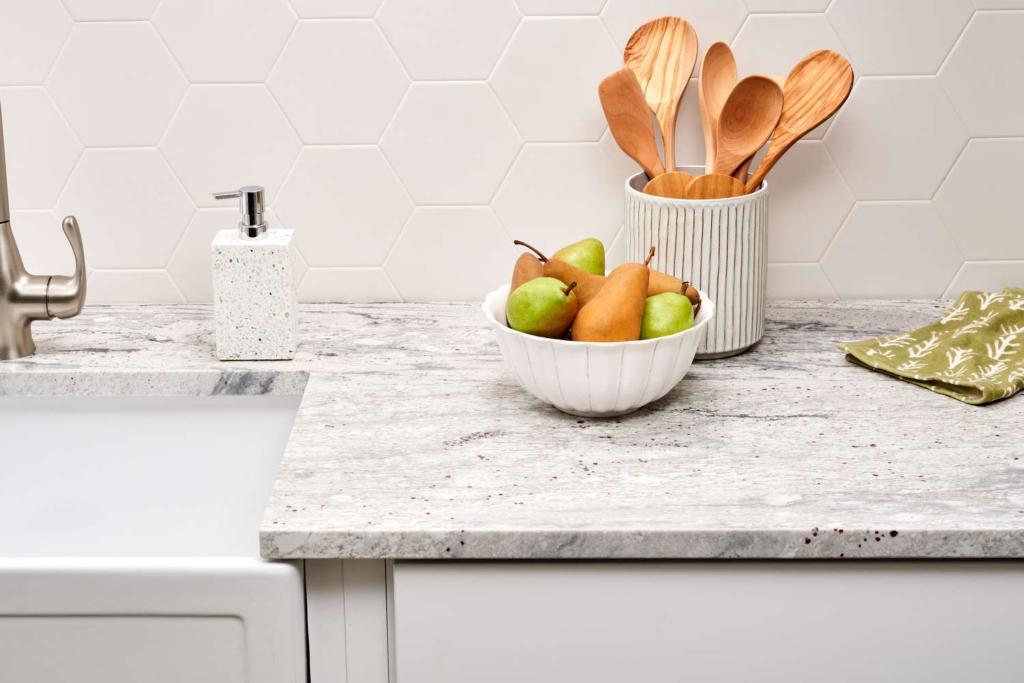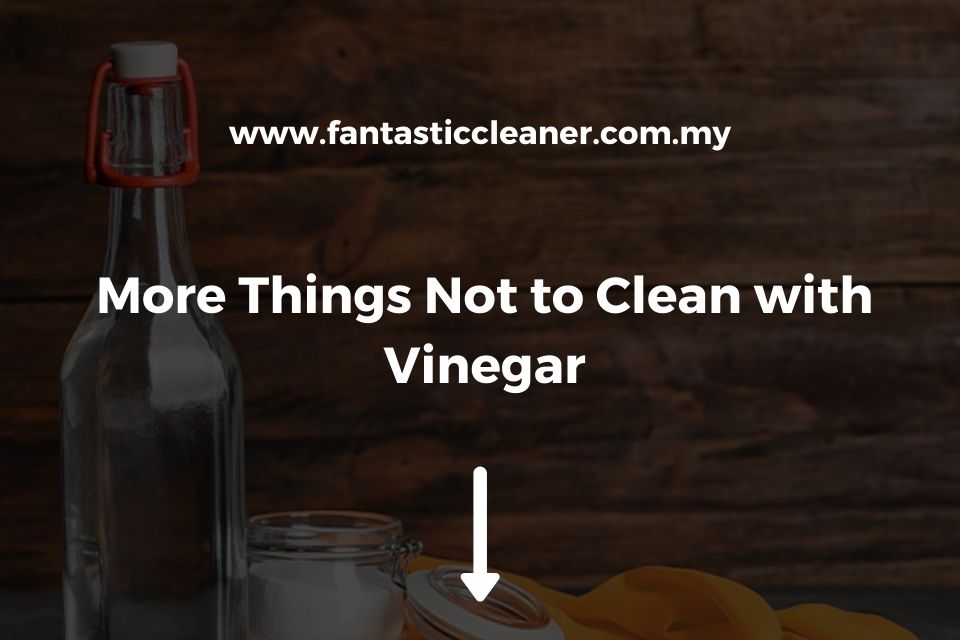Are you aware of one of the most flexible cleaning agents you can have in your home? It’s vinegar. However, per the advice of our Puchong cleaning crew, despite its effectiveness in cleaning and sanitizing, there are certain items that vinegar should not be used on. In this blog post, we’re going to delve into the things you shouldn’t clean with vinegar and the reasons why choosing a different cleaning solution is crucial.

Table of Contents
Wood and Stone Flooring
Do not use vinegar on wood or stone flooring, as it will cause the finish to become dull and discolored.
Instead, you should clean these surfaces with a dry microfiber cloth first to remove any dust or dirt that is present, then go over them again with water.
This leaves no residue behind that can damage your floors or make them look less attractive.
Nonwashable Fabrics

Vinegar has an alkaline pH level which means it can destroy dyes in fabrics very easily—especially nonwashables like silk!
If you are worried about stains on fabric items, mix one-part water with two parts white distilled vinegar before applying directly onto the stain using a cotton ball/pad of some sort. Let sit for five minutes before rubbing the stain away.
Mirrors and Glass Surfaces
Do not use vinegar on mirrors or glass surfaces because its high acidity level can cause streaks to appear on glass surfaces.
Vinegar is also not very effective against hard water stains, which are common in bathrooms with lots of mirrors or windows—even if you’ve used vinegar before without any problems.
It’s best to clean these with a microfiber cloth, water, and dish soap instead.
Instead of using vinegar for cleaning purposes, you should check out products that are the most effective at removing stains from different materials in your home. There are various cleaning products available on the market that are designed to tackle specific cleaning challenges, such as grease, grime, or soap scum. These products are formulated to be more effective at breaking down and lifting stains from surfaces, making them a better choice for tough cleaning jobs. While vinegar cleaning tips may work well for some minor cleaning tasks, investing in specialty cleaning products can make a big difference in maintaining a clean and healthy home.
Granite Kitchen Counter Tops

Do not use vinegar on granite, as the acidity can wear away at the stone’s surface over time.
Instead, you should clean these surfaces with a mild soap or dish detergent and water to avoid further damage.
For any kitchen countertops made out of natural stones like marble or quartz, it is best to remove tough stains using rubbing alcohol instead—you will get great results every time without having to worry about damaging your counters.
Electronic Screens
It is best not to use vinegar on electronic screens, as it can cause them to become less responsive or even damaged.
You wouldn’t want your electronics failing to function because of this product’s high acidity level.
Instead of using a spray bottle filled with vinegar and water for this purpose, you should stick to specially formulated screen cleaning sprays instead—they will do a much better job at removing dirt from your devices without any side effects.
Steam Irons and Knives

You should also not use vinegar on a steam iron or any knives you might have, as it can cause them to lose their sharpness.
The high acidity level of this product is also very corrosive—which means that your appliances and tools may be damaged over time if they come into contact with the substance.
Instead of using vinegar for cleaning purposes, we recommend using appropriate products for iron and knives like a specially formulated knife cleaner and a steamer for your iron.
Takeaway
This list of items not to clean with vinegar might surprise you, but it’s important that people know what is and isn’t safe for cleaning.
We recommend using a different type of solution all together because vinegar can ruin the surfaces in your home. If you want more information about this topic, don’t hesitate to get in touch with us anytime.

